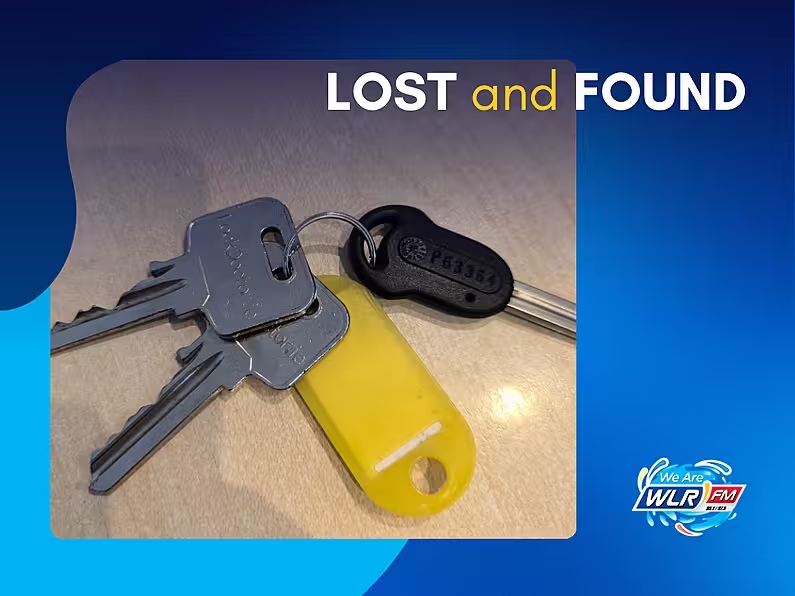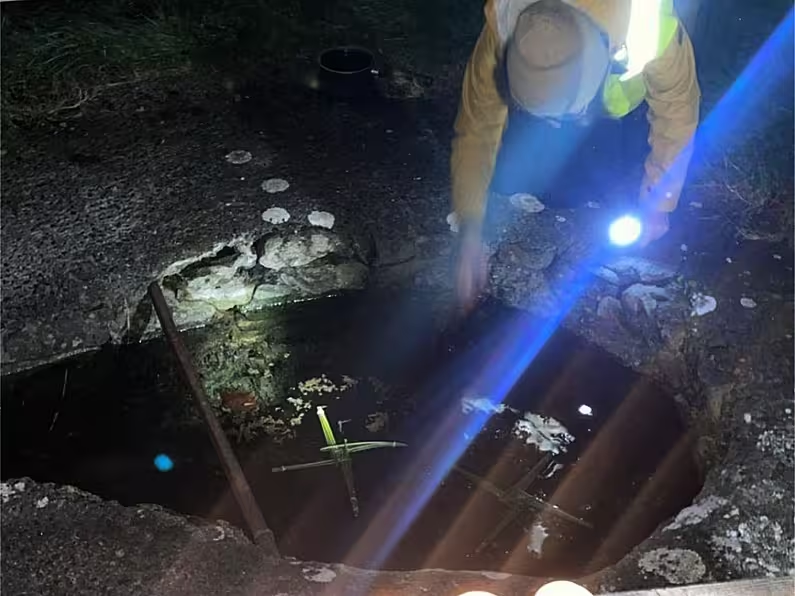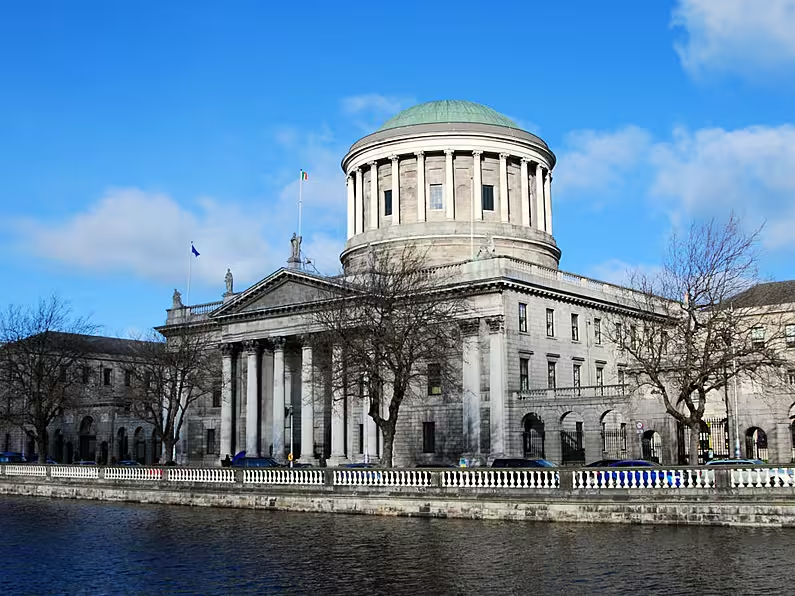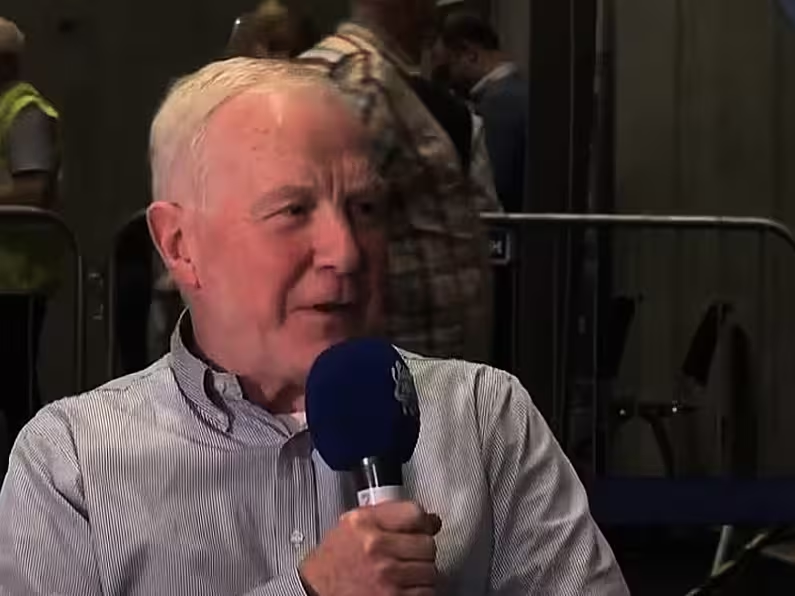Alison O’Riordan
The sister of a fisherman whose life was "so brutally and viciously robbed" after a row over missing crack cocaine has said that her 37-year-old brother had 40 stab wounds on his body and was "left to die like a dog." "Think about that, he had more stab wounds than his age," she told the Central Criminal Court today.
The sister of Stephen "Apples" Kavanagh, Stephanie Kavanagh, said that the trial had been conducted "according to the fictional and fanciful tales" of the defendant Darren Houlden, who she said had portrayed himself "as a true victim of the crime".
Defence counsel Brendan Grehan SC, for Houlden, told the sentence hearing that it had not taken "Sherlock Holmes" to solve this case as his client, who was "covered from head to toe in blood" and carrying a knife, had walked into a garda station and admitted stabbing the deceased.
In a letter of apology to the victim's family, Houlden said that taking Mr Kavanagh's life was "the most unnatural of acts" and he wished he could change what had happened that night and was "truly sorry".
Manslaughter verdict
Following a trial at the Central Criminal Court last December, Houlden (44), with an address at The Crescent, Meadowvale, Arklow, Co Wicklow, was found not guilty of murder but guilty of the manslaughter of Mr Kavanagh at the same location in the early hours of May 6th, 2019. He had pleaded not guilty to murder but guilty to manslaughter.
The jury unanimously accepted the defence case that Houlden had "lost control and snapped" when he stabbed Mr Kavanagh in a "frenzied attack". It was the defence contention that "fear" was at "the heart of the case" and the accused was not only afraid for "his own skin" but that the victim had also threatened his family, which had "set him off".
Mr Grehan, representing Houlden, had asked for a verdict of manslaughter on the basis of the partial defence of provocation, which can reduce an intentional killing from murder to manslaughter.
Stab wounds
Former Deputy State Pathologist Dr Michael Curtis testified that Mr Kavanagh died after receiving "around 40 knife wounds" to the head, neck and face, which included the slicing of the right jugular vein and the thyroid artery, which cut the pharynx in the victim's throat.
Evidence was given that Houlden drove to Arklow Garda Station covered in blood at around 00.35am on the morning of May 6 following a weekend of smoking crack cocaine and taking a medley of drugs with the victim and his girlfriend. The accused handed a "bloodied knife" to the member-in-charge at the hatch of the public office and told him: "It's my fault. I attacked him. It's all on me."
Houlden told gardaí in his interviews that Mr Kavanagh was angry when he discovered that his cocaine was missing and made a phone call to someone saying: "There is trouble down here, your stuff has been taken, get bodies down here."
The accused told detectives that he begged Mr Kavanagh not to make a second phone call after the victim threatened him that "gangsters" would bring him to "the woods" and shoot him over the missing cocaine.
'Went into a rage'
Whilst Mr Kavanagh was making the second call on the upstairs landing, Houlden said he was "like a lunatic" and "went into a rage" as he "went for" the deceased's brain with the knife.
Mr Kavanagh's girlfriend Rachel Kearney gave evidence that she saw the accused "slaughtering" and "overkilling" her boyfriend. The witness said that Houlden was on top of her partner and had his knees on his back as he stabbed the victim.
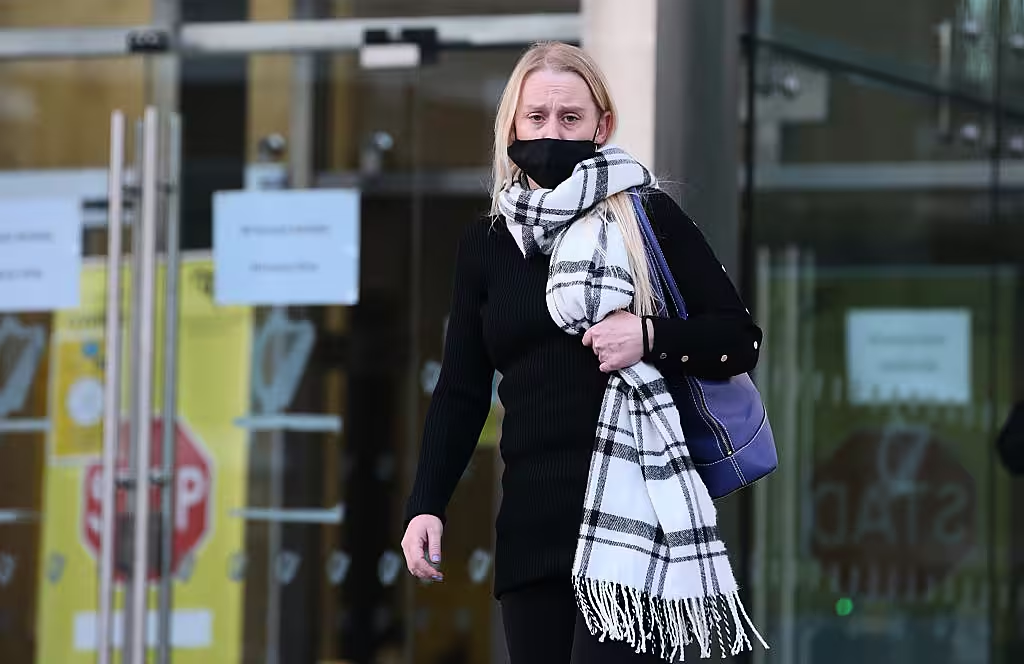
Mr Kavanagh's girlfriend Rachel Kearney gave evidence that she saw the accused "slaughtering" and "overkilling" her boyfriend. Photo: Collins Courts
In an emotional victim impact statement today, Mr Kavanagh's sister, Stephanie Kavanagh, said that her brother was "not a statistic", had a beating heart and felt emotions and pain. "We never thought we would have to sum up someone's life before they had finished living it," she said.
Ms Kavanagh said the deceased was a son, brother, uncle and friend, who had a passion for fishing and boats. Her mother had "an unbreakable bond" with her son that could not be "rocked" and they needed each other like "one needs fresh air", she explained. "He was a mammy's boy and once when his trawler was sinking he rang mum before the coastguard to say he loved her," she added.
'Tales'
The witness stressed that her brother was never involved in gangland crime as he had been portrayed during the trial. "I felt the trial ran its course according to the fictional and fanciful tales of Darren Houlden," she said, pointing out that the missing drugs had been later found in the accused's bookcase in his bedroom.
At today's sentence hearing, Detective Garda Liam Flynn detailed the background to the event, telling prosecution counsel James Kelly BL that the accused had arrived into Arklow Garda Station covered in blood and carrying a large kitchen knife on a bank holiday weekend in June 2019.
Outlining the events that led up to the incident, Det Gda Flynn said Houlden had met Mr Kavanagh two days prior to attending the garda station, where it was agreed that both men and Ms Kearney would go to Houlden's house to consume drugs.
The court heard that Houlden was living in his parents house in Arklow at the time and had brought Mr Kavanagh to a pub on the coast, where a drugs "pick up or transaction" took place. They all returned to the accused's house and the party continued, where crack cocaine was smoked with a pipe through the Saturday night and into the early hours of Sunday morning, said counsel.
Things started to sour
Around 10pm on Sunday evening, things started to "sour" in what would have been a "comfortable relationship" between the three individuals up to that point. Mr Kavanagh had hidden some drugs in the house and when he went to look for them they were missing. "A finger of suspicion as to where the drugs had got to was being pointed in the direction of Mr Houlden," said Mr Kelly, which led to raised voices, accusations and threats.
"In effect Mr Kavanagh threatened Mr Houlden that if the drugs weren't found he would make phone calls and people of a menacing sort would come and sort out the situation," said Mr Kelly. Phone calls were made by Mr Kavanagh and an impression was formed in the accused's mind that "a real, live, dangerous person" could cause a threat to him.
Mr Houlden attacked Mr Kavanagh with a knife and knelt on top of him in the upstairs part of the house. Ms Kearney had grabbed the accused's hand and "beseeched' him to stop what he was doing. "She said he promised to do that but said when she removed her hand he resumed the attack on Mr Kavanagh," said Mr Kelly.
Mr Kavanagh was dragged across the hallway to a different bedroom and the knife attack continued. Ms Kearney was concerned for her own safety and phoned 999.
During interviews Houlden admitted to having caused the death of Mr Kavanagh and presented "a narrative claiming he had been threatened and felt under threat". He was terrified that a further telephone call would be made, where his address would be revealed and people would be summoned to investigate the disappearance of the drugs, said Mr Kelly.
The court heard that Houlden has 13 previous convictions which include assault causing harm, possession of drugs and forgery.
Ms Justice Carmel Stewart expressed her condolences to the Kavanagh family and thanked them for their statements. The judge remanded Houlden in custody until July 6th, when he will be sentenced.





